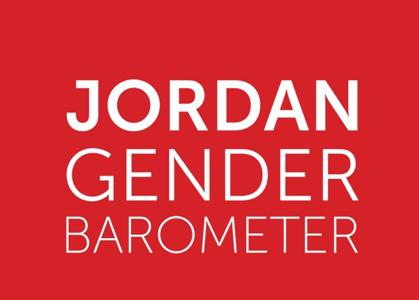You are here
Jordan Gender Barometer survey sheds light on women’s mental health
By Rayya Al Muheisen - Jan 25,2022 - Last updated at Jan 25,2022

AMMAN — Economic concerns are a major issue for Jordanian women, with unemployment and poverty being most reported, according to a recent survey.
According to the Jordan Gender Barometer survey, “over 70 per cent of Jordanians are struggling financially, with 48 per cent unable to meet their basic needs”.
The national survey is conducted by Jordanian researchers using a sample of 2,400 participants nationwide, and was published by the Centre for Strategic Studies at the University of Jordan in partnership with the Jordanian National Commission for Women and Humanist Institution for Cooperation with Developing Countries (HIVOS).
According to its findings, “over 60 per cent of women in Jordan stated that they are unhappy and angry”.
Negative feelings of unhappiness, anger and sadness were more common in women, as well as being more likely to get violent due to their sadness, the survey reported.
“Emotional and mental health is as important as physical. Women’s emotional and mental needs have to be met in order for them to be able to be an effective part of the society,” psychologist Salma Nimer told The Jordan Times.
Consistent unhappiness among women is on the rise, Nimer noted, with women likely to report severe unhappiness. As women get older, ‘unhappiness’ usually lessens when they are no longer responsible for elderly parents and children at the same time.
“Society pressures women to look, dress and act in a certain way. Women are expected to be flawless and multitask,” Salam Masa’d, 33, told The Jordan Times.
Hana Omar, 45, added that “working mothers are pressured for neglecting their children and households. Meanwhile, homemakers are pressured for being ‘trophy wives’ and ‘non-achievers’.”
The survey added that “the main cause of conflict between spouses was financial concerns,” and reported that although women contribute to household expenses, men are the main household providers.
The survey found that there was a gap in perception between what female respondents reported as contributing to their households and what male respondents believed their wives contributed.
Nimer added that “women are usually more emotional than men and typically hold onto more responsibilities,” noting that “an average Jordanian homemaker has to maintain her house, raise her children and also work to generate income to support her family”.
The survey also found that female respondents would not report domestic violence or seek help from Family Protection Unit or police.
Nimer stated that women in Jordan are subject to different types of violence, with one of them being economic violence.
She explained that women who suffer from economic violence are deprived from financial resources. Furthermore, they often face serious threats to their personal financial well-being which form barriers to women realising their personal financial capability.
“Over 60 per cent believed that it is the mothers right to be the legal guardian of her children,” the survey observed.
Nimer stated that “traditional gender roles have changed. A woman’s main role in a household is not limited to cooking, cleaning and raising children,” she continued, “women are now providers for households, they have to earn money and support their husbands”.
Related Articles
AMMAN — The 2017-2018 Jordan Population and Family Health Survey (JPFHS) has revealed a correlation between the increasing literacy rate in
AMMAN — Almost 26 per cent of Jordanian wives ages 15 to 49 have been abused by their husbands, while only 1 per cent of husbands have been
AMMAN — Eighty-two per cent of students who participated in a survey by the Jordanian National Commission for Women (JNCW) said they receive












